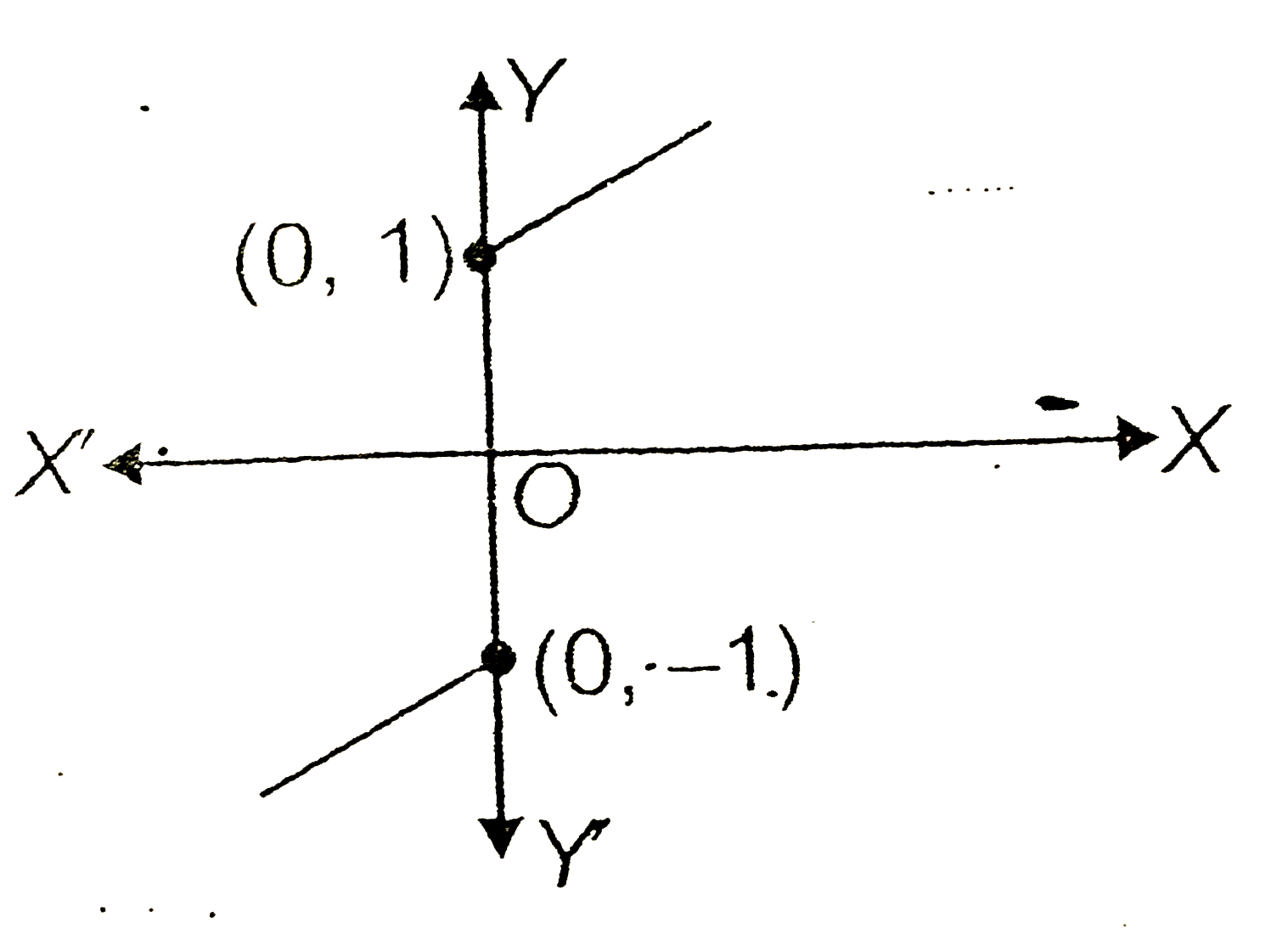Find limx→0f(x), where f(x)=⎧⎪⎨⎪⎩x−1x<00x=0x=1x>0
Video Solution
Text Solution
Firstly, we evaluate f(x), when x<0 for that we need to evaluate x - 1
x−0.1−0.01−0.001−0.0001f(x)=x−1−1.1−1.01−1.101−1.0001
Now, we evaluate f(x) for x>0, for that we need to evaluate x + 1
x0.00010.0010.010.1f(x)=x+11.00011.0011.011.1
From the first table, we observe that value of the function is decreasing to -1 and hence limx→0f(x)=1
From the second table, we observe that value of the function is increasing from 1 and hence limx→0+f(x)=1
Since the left and right hand limits at 0 do not coincide, we say that the limit of the function at 0 does not exist

Graph of this function is also shown here, we can see that the value of the function at x = 0 is well defined and is equal to 0, but the limit of the function at x = 0 is not even defined.
|
Updated on:21/07/2023
Topper's Solved these Questions
- BOOK - AAKASH INSTITUTECHAPTER - LIMITS AND DERIVATIVES EXERCISE - Try yourself64videos
LIMITS AND DERIVATIVES
- BOOK - AAKASH INSTITUTECHAPTER - LIMITS AND DERIVATIVES EXERCISE - SECTION - A50videos
LIMITS AND DERIVATIVES
- BOOK - AAKASH INSTITUTECHAPTER - LIMITS AND DERIVATIVES EXERCISE - Section - j3videos
LIMITS AND DERIVATIVES
- BOOK - AAKASH INSTITUTECHAPTER - INVERSE TRIGONOMETRIC FUNCTIONSEXERCISE - ASSIGNMENT (SECTION - J)(ANKASH CHALLENGERS QUESTIONS)4videos
INVERSE TRIGONOMETRIC FUNCTIONS
- BOOK - AAKASH INSTITUTECHAPTER - MATHEMATICAL REASONINGEXERCISE - Assignment (SECTION-D) (Assertion-Reason Type Questions)15videos
MATHEMATICAL REASONING
Similar Questions
Knowledge Check
- Question 1 - Select One
If f(x)=⎧⎪ ⎪⎨⎪ ⎪⎩x−1,x<014,x=0x2,x>0
Alimx→0+f(x)=1Blimx→0−f(x)=1Cf(x) is discontinuous atx=0Df(x) is continuous atx=0 - Question 2 - Select One
If f(x) = {exx≤0|1−x|x>0then
Af(x ) is differentiable at x = 0Bf (x ) is continuous at x = 0,1Cf (x ) is differentiable at x = 1DNone of the above - Question 3 - Select One
Let g(x) = x - [x] - 1 and f(x)=⎧⎪⎨⎪⎩−1, x<00, x=01, x>0 [.] represents the greatest integer function then for all x, f(g(x)) = .
A2B1C0D−1
Find limx→0f(x), where f(x)={x|x | ,x≠00,x=0
View SolutionFind limx→0f(x) and limx→1f(x), where
f(x)={2x+3,x≤03(x+1),x>0View SolutionFind limx→0f(x) where f(x) = {2x+3x≤03(x+1)x>0
View SolutionCalculate limx→0f(x), where f(x)=1x2 for x>0
View SolutionEvaluate limx→0f(x), where :
f(x)={x|x|,x≠00,x=0View Solution
